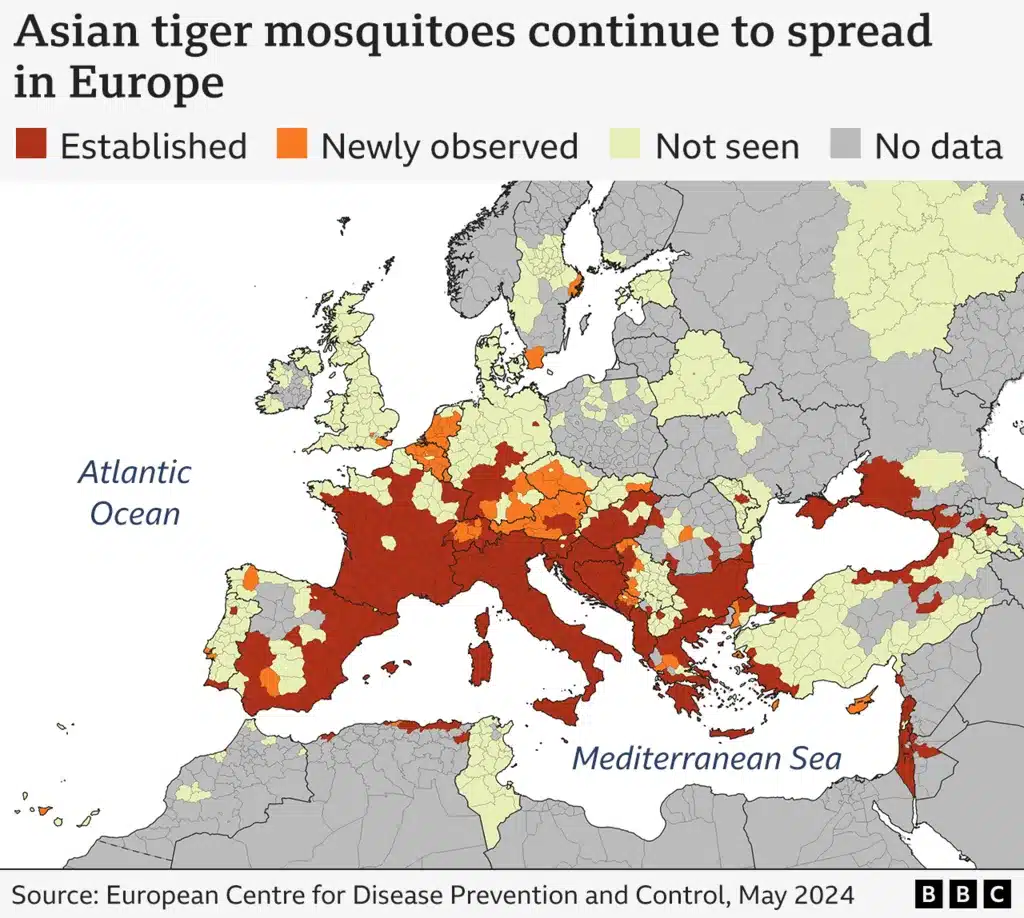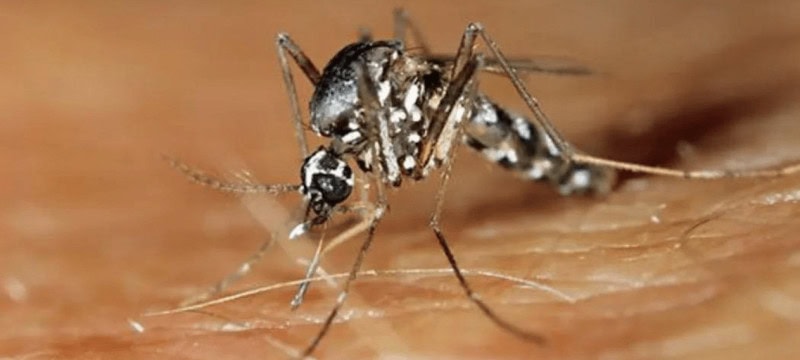An invasive mosquito species has established itself in 13 EU countries, including France, Spain, and Greece, contributing to the rise of dengue fever in Europe. According to the European Centre for Disease Prevention and Control (ECDC), climate change is facilitating the spread of the tiger mosquito.
Authorities in Paris, set to host the Olympic Games in late July, are actively monitoring and trapping these insects. The ECDC has cautioned that international travel may further heighten the risk of European outbreaks.
Read more: Blaze At Renowned Bangkok Market Claims Lives Of 1000 Animals
They recommend removing stagnant water from gardens or balconies, using repellents, and installing screens on windows and doors to mitigate mosquito breeding.

‘Regarding’
Mosquitoes have emerged as an increasing threat in Europe over the last two decades. The Asian tiger mosquito, Aedes albopictus, considered the most invasive mosquito species globally, is expanding its presence across Europe from its initial southern European stronghold.
It is now established in Austria, Bulgaria, Croatia, France, Germany, Greece, Hungary, Italy, Malta, Portugal, Romania, Slovenia, and Spain, as reported by the ECDC. Additionally, it has been spotted in Belgium, Cyprus, Czechia, the Netherlands, and Slovakia.
Tiger mosquitoes are vectors for diseases like dengue fever, chikungunya, and Zika virus, which were traditionally confined to regions in Africa, Asia, and the Americas.
Another mosquito, Aedes aegypti, known for transmitting yellow fever and other diseases, has taken root in Cyprus. Experts find its potential to spread to other parts of Europe “concerning” due to its preference for biting humans and its disease-transmitting capabilities.

Dengue begins with flu-like symptoms but can escalate to severe and sometimes fatal conditions. Mass outbreaks have been increasing in recent years. Last year, France recorded eight incidents of multiple infections, Italy had four, and Spain had two.
Most cases in Europe are imported, reflecting global travel and trade, with nearly 5,000 imported cases last year. However, locally-acquired infections are also on the rise, with 130 cases in 2023, up from 71 the previous year.
Additionally, West Nile virus, also spread by mosquitoes, is now found in more European regions than ever. One infection was reported in southern Spain in early March, highlighting how climate conditions are creating a favorable environment for mosquitoes even “very early in the year,” according to the ECDC.

“Europe is already experiencing how climate change is facilitating the spread of invasive mosquitoes into previously unaffected areas, leading to more people being infected with diseases like dengue,” said ECDC director Andrea Ammon.
“Increased international travel from dengue-endemic countries will also elevate the risk of imported cases and consequently the risk of local outbreaks.”
Ms. Ammon urges people to take “personal protective measures,” emphasizing that “early detection of cases, timely surveillance, further research, and awareness-raising activities are crucial in the European areas most at risk.”

Dengue fever is endemic in over 100 countries globally, with the World Health Organization (WHO) reporting over six million cases and 7,000 deaths last year.
The highest incidences are in Bangladesh, Malaysia, Thailand, and Vietnam. Malaria remains the deadliest mosquito-borne disease, transmitted through the bites of infected female anopheles mosquitoes, which have also been detected in Europe.
There are concerns that malaria cases could surge on the continent in the future if conditions become favorable.









